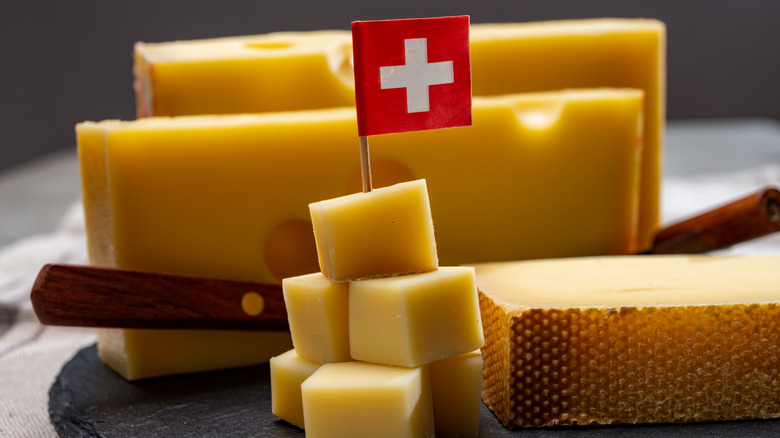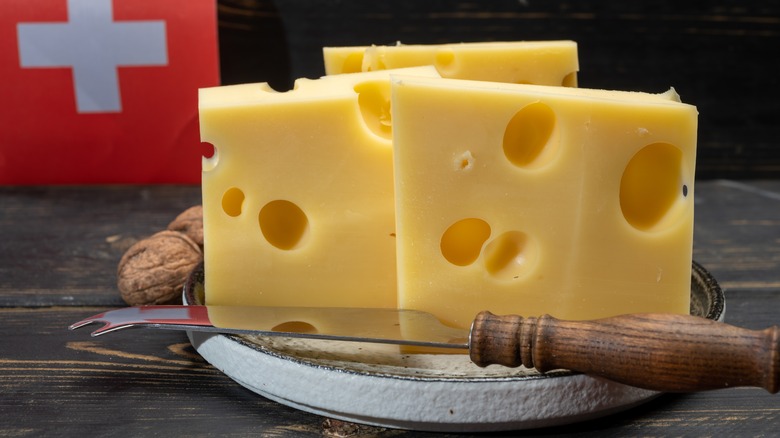Are Emmental And Swiss Cheese The Same Thing?
Finding the right type of cheese for your after-dinner nibbles is tough enough without some types being head-scratchingly similar, but the universe likes to challenge us sometimes. Take Emmental and Swiss cheese, for example. Both have holes (but not always, to keep us on our toes), both have a light, nutty taste, and both originated in Switzerland. So, why different names when the cheeses are, at first glance, identical?
The answer requires us to widen our scope beyond American soil. While it's true that, in the U.S., these cheeses are essentially the same, that's only based on marketing fine print. Following standards set by the USDA, Swiss and Emmentaler (another name for Emmental) cheeses "are interchangeable." As long as the finished product is chemically the same as that made by the Swiss process, it can be safely called Swiss or Emmentaler, depending on what mood you're in.
Simple, right? Wrong. Get on a plane, head over to Switzerland, and receive your slap on the wrist. In many European countries, Switzerland included, certain foods and drinks are protected by geographical indication schemes designed to conserve authentic regional products. Emmental cheese is one example, protected under the appellation d'origine protégée (AOP), or protected designation of origin (PDO), indicator.
Emmental is protected under European laws
Emmental was granted the AOP label in 2006 by the Federal Agriculture Office. According to the Swiss Broadcasting Corporation's online news and information site Swiss Info, the office's director, Manfred Bötsch, said the move was to "help protect the origin, quality, and tradition of Switzerland's Emmental cheese." To be officially classed as Emmental and given that all-important AOP label, every part of the cheese's production must occur within a designated geographical area set out by the Swiss Federal Office of Agriculture.
When marking a true Emmental from a Swiss cheese in terms of taste, it's all about simplicity. Raw, unpasteurized milk from cows fed in the designated regions is curdled and then aged under warm temperatures for several months for Emmental. Maturation time varies depending on the brand, but the consensus is that it should mature for at least two months. Swiss cheese should also be aged for a couple of months, but U.S. regulations permit the use of pasteurized ingredients.
Some protections, like that of Emmental, are nationwide, but others extend beyond borders and across the European Union. Any product protected under the EU's geographical indication scheme has cultural standing, and, as such, countries within the EU cannot sell products under the protected regional name unless it's entirely authentic.

